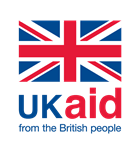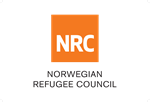Supported by UK Aid, the Danish Refugee Council (DRC) has rehabilitated water sources within Kulba. It has had a profound impact on the lives of the residents. With closer access to clean water, the time spent waiting at water stations has decreased significantly. This has reduced the potential for conflict with the host community, and helped restore a measure of dignity and control to camp residents.
Musa describes the positive changes, “The water source has made us feel that there are people who care about us.”
The improved access to water has led to a marked decrease in gender-based violence, as women and girls no longer have to venture far in search of water.
But DRC's work in Kubla has extended beyond just providing water. With UK Aid funding, DRC has also formed a Community Based Protection Network (CBPN) to monitor and address protection concerns within the camp. This network, along with existing youth associations and community leaders, has helped fostered a sense of collaboration, agency and empowerment.
Looking towards the future, the people of Kulba camp yearn for an end of the conflict and the restoration of peace. They dream of returning to their homes, rebuilding their lives, and ensuring their children go to school. In the meantime, they will continue to need our compassion and support.



